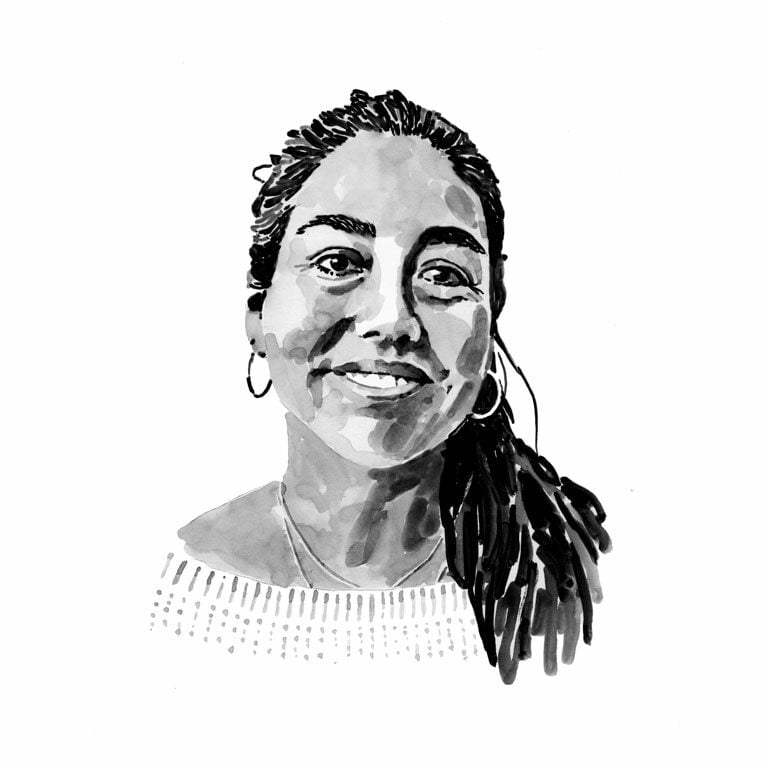Alejandra Mendoza Pfennig

Who I am
I grew up by the sea in Lima, the capital of Peru. When I was little, I used to spend my summers camping with my parents on a beach where there were no houses, only fishing camps. I would wake up early to wait for the fishermen to return in their boats and then watch them disentangle the fish from the nets and ask them the names of the different species. Although I was very young, I soon recognised all the species and learned to remove the scales and clean the fish on the rocks with sea water. That is where my passion for marine life and the world of artisanal fishing was born. Later, I decided to study for a degree in fisheries engineering and soon discovered the fascinating world of sharks and rays. Shortly before finishing university, I had the opportunity to join a local marine conservation NGO (ecOceánica) that was starting a whale shark project when nothing was known about the species in Peru. It was perfect for me: I had to interview fishermen and study sharks. During that summer I discovered a new world, not only learning about whale sharks, but also being immersed in the world of artisanal fishing. I understood the dynamics of fishing, the species, the market, how everything worked and I was amazed. I also understood that there was a lot of work to be done, that the fishing of the golden years no longer existed and that something had to be done to recover it. Shortly after finishing my degree, I moved to the north of Peru, where I have been working with artisanal fishermen to conserve endangered species and to improve fisheries and make them more sustainable.
Where I work
I work in the north of Peru, mainly in the regions of Piura and Tumbes. This is a very special area because it is where the high productivity of the cold Humboldt Current meets the high biodiversity of the warm tropical current coming from Ecuador. There is a great diversity of marine megafauna here, with humpback whales, manta rays, whale sharks, blue whales, killer whales and green, olive ridley and hawksbill turtles. And if you dive down a little way and look closely at the rocky reefs, the magic of the groupers and parrot fishes leaves you breathless.
This is a very important area for coastal communities in which artisanal fishing is the families’ only source of income. Peruvian law allows sharks and rays to be caught, but there are no proper fishing regulations for most species in the area because not enough is known about them. For example, of the 66 commercial species, there is a minimum size for six, the fishing season is closed for one during its breeding season, and for another two threatened species – one a sawfish – it is closed indefinitely. There have been few reports of this species in recent years and although fishing for sawfish is already prohibited, little is known about its local distribution and the use of its habitat, so it is important to generate information that supports the care of the ecosystem where a remnant population could exist.
What I do
Working with artisanal fishermen is my main activity, usually where they land the fish or on their fishing trips. It is important for me to work together with the fishing community to benefit not only the ecosystem, but also their lives by ensuring that their means of earning a livelihood is sustainable over time as well as profitable. I firmly believe that it is important to understand that the conservation of species cannot be separated from artisanal fishing and that the main agents of change are the fishermen. That is why training for the fishermen is always included in any project or job I do. Teaching, raising awareness and changing mindsets is not a one-day job, so repetition and a willingness to be present in the workplace to answer questions that may arise is important.
In addition to the training, it is crucial to collect information, process data and present results. The consistency over time of these actions can generate valuable information that can be used to propose management measures and to implement regulations appropriately. Without it, we would not know how to manage many of the species. The work in the field is always much better managed when everyone involved has their say, which is why I think it is important that science and empirical knowledge must work together.
